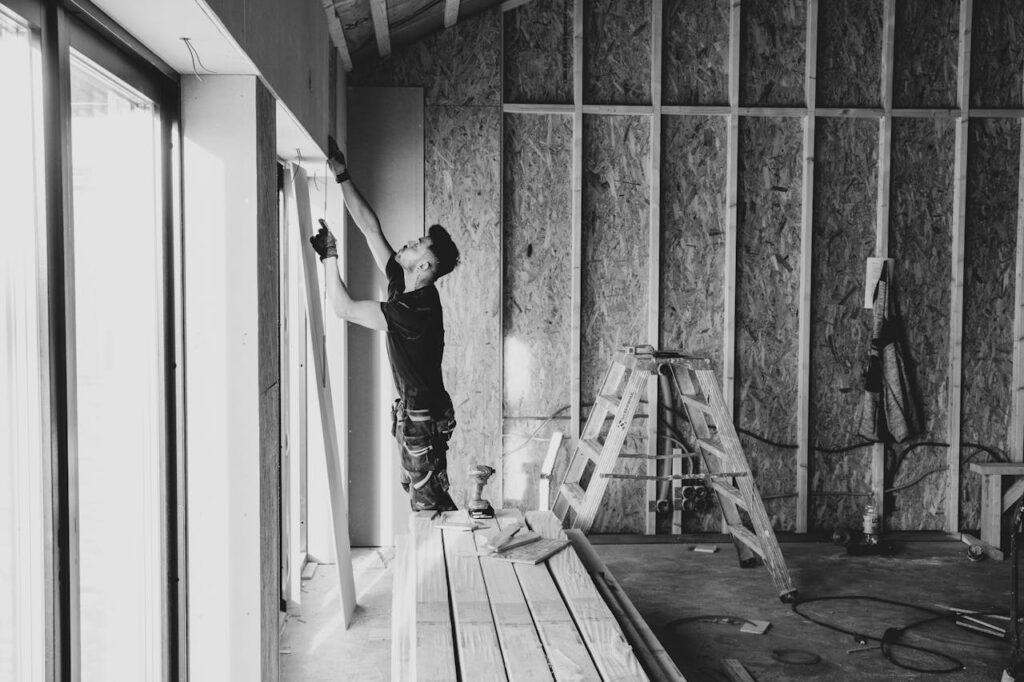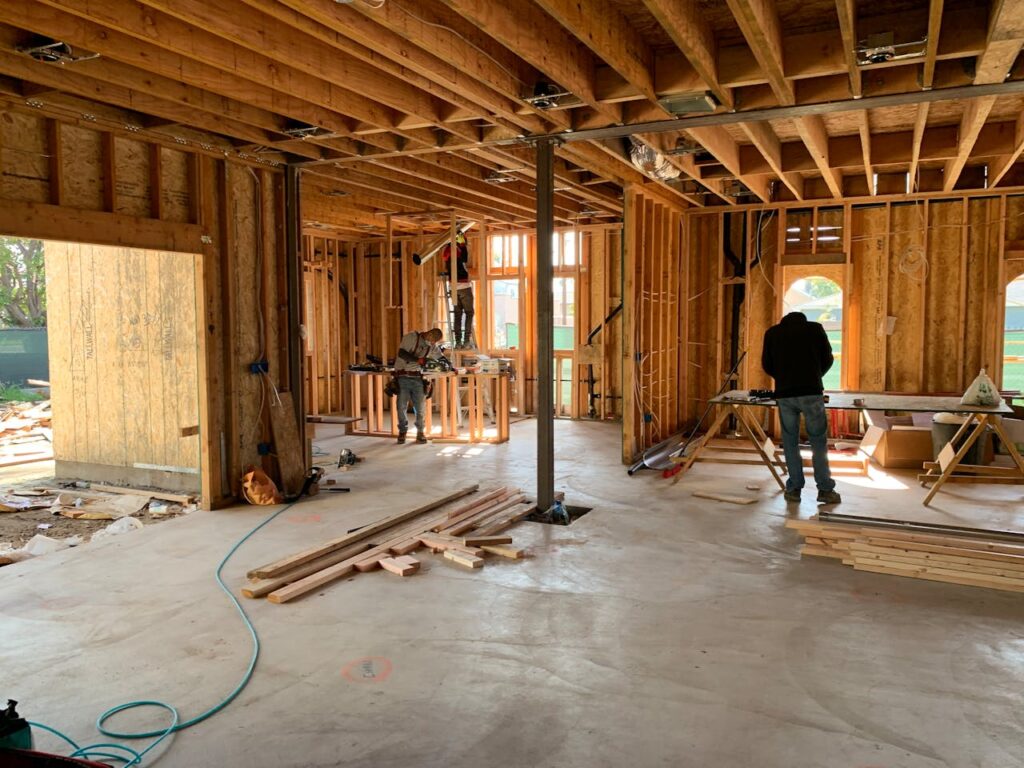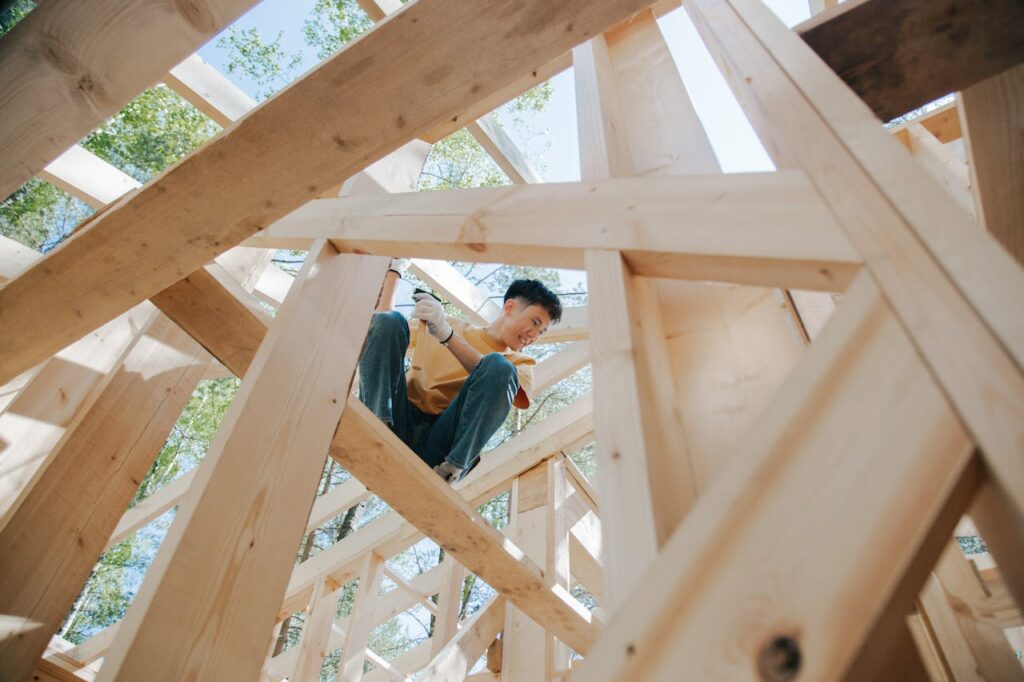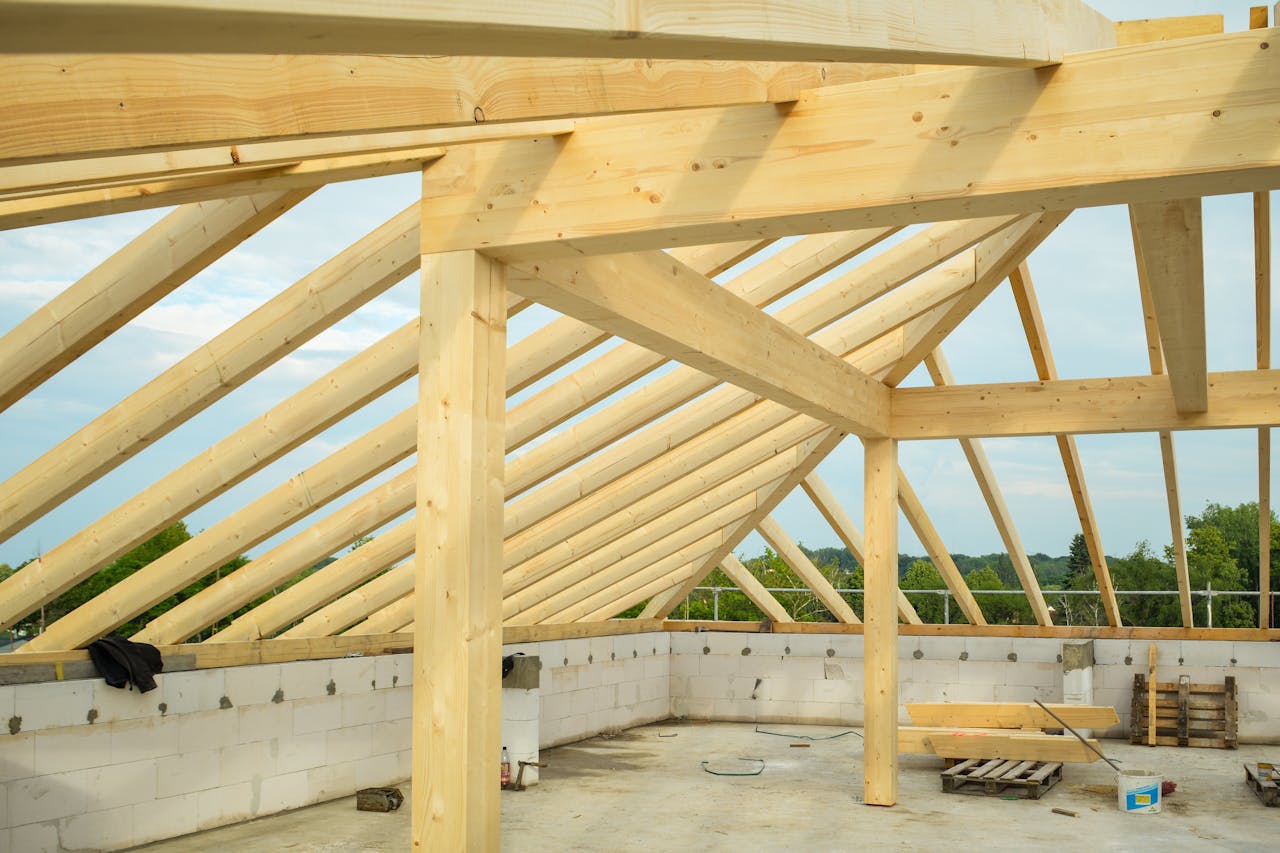If you’re considering building your dream home but don’t know where to start with financing, an FHA construction loan might be a good fit for you. Backed by the Federal Housing Administration (FHA), these loans are designed to help more Americans achieve their dreams of homeownership – part of a mission that has led the FHA to insure over 40 million home loans since 1934.
While Defy Mortgage doesn’t currently offer FHA construction loans, we’ve created this guide to walk you through the basics so you can decide if it’s the right choice for your project and learn how to handle the process with confidence.
What Is an FHA Construction Loan?
An FHA construction loan is a government-backed financing program that combines a traditional FHA loan with the features of a construction loan. Let’s break that down.
A traditional FHA loan, insured by the FHA, is designed to help borrowers with lower credit scores or smaller down payments buy a home. It’s a popular option because the government backing reduces risk for lenders, making it more accessible for buyers who might not qualify for conventional loans.
A construction loan, on the other hand, is used specifically to finance the cost of building a home. These loans typically require higher credit scores and larger down payments since they carry more risk for lenders.
What makes an FHA construction loan so appealing is that it seamlessly combines the benefits of both: you can finance the construction of a new home while still enjoying the flexible credit and down payment requirements of a traditional FHA loan. If you’re dreaming of building your own home but need a more accessible financing option, an FHA construction loan could be worth exploring.
How Does an FHA Construction Loan Work?
An FHA construction loan works by combining the financing for building a home with your permanent mortgage into a single loan, often called a “one-time-close” loan. This means you won’t have to apply for separate loans or go through multiple closings, which can save time and reduce costs.
Here’s how it typically works: the loan provides funds for the construction phase, which are disbursed in stages as the builder completes different parts of the home. During construction, you may only be required to pay interest on the amounts disbursed. Once the home is finished, the loan converts into a standard FHA mortgage, and you’ll begin making regular payments. Overall, it’s a streamlined way to finance building your dream home while keeping the process simple and affordable.

Types of FHA Construction Loans
When it comes to FHA construction loans, there are two main types designed to meet different needs. Both are government-backed, but they serve distinct purposes depending on your project.
- Construction-to-Permanent Loan: This option is ideal if you’re building a brand-new home from the ground up. It combines the financing for construction and the permanent mortgage into a single loan, simplifying the process with just one closing. During construction, funds are disbursed in phases, and once the home is complete, the loan converts into a standard FHA mortgage.
- 203(k) Rehabilitation Loan: If you’re looking to renovate an existing home, this loan is a perfect fit. You can finance both the purchase price and the cost of repairs all in one loan. Whether you’re fixing up a fixer-upper or updating an older home, the 203(k) makes it easy to roll those costs into your mortgage.
Each type of FHA construction loan was designed for different goals, so understanding which one fits your situation is key to making your dream home a reality.
FHA Construction Loan Requirements
To qualify for an FHA construction loan, you need to meet specific criteria set by the FHA, as well as additional requirements from the lender which can vary by lender. Here are the general requirements you should expect:
- A valid Social Security Number (SSN)
- You must be a U.S. citizen, permanent resident, or eligible non-resident
- A minimum credit score of 580 for a 3.5% down payment
- Scores between 500-579 may qualify with a 10% down payment
- A minimum down payment of 3.5% depending on your credit score, which can include the cost of construction and the land
- A maximum debt-to-income (DTI) ratio of 43%
- Proof of steady income or alternative income sources for at least two years
- The builder must be FHA-approved and licensed
- Construction contract, plans and cost estimates
- Construction must typically be completed within 12 months
- You must pay a Mortgage Insurance Premiums (MIP):
- Upfront during closing (typically 1.75%)
- Annually, added to monthly payments
- The property must:
- Be the borrower’s primary residence
- Meet the FHA’s minimum property standard
- Not exceed the FHA maximum loan limit for the county
FHA Construction Loan Property Requirements
To qualify for an FHA construction loan, the property being built needs to meet specific standards to align with the program’s safety, security, and livability guidelines. Here are the main property requirements:
- Eligible Property Types: The property must be a one-unit, stick-built primary residence, a newly constructed manufactured home, or a modular home. Multi-family properties and investment homes are not eligible.
- Location Requirements: The property must be located in an area that is not prone to frequent natural disasters or environmental hazards, such as flood zones or earthquake-prone areas, unless proper safety measures and insurance are in place.
- Qualified Contractor: The contractor responsible for construction must be licensed, insured, and experienced in handling FHA construction loans. Lenders often require documentation verifying the contractor’s qualifications and previous work history.

FHA Construction Loan Lenders
When it comes to FHA construction loan lenders, finding the right one is essential to making your dream home a reality. Look for a lender who is FHA-approved, experienced with construction loans, and knowledgeable about the unique requirements of combining a construction and permanent loan into one package. You’ll want someone who can guide you through the process, answer your questions, and ensure everything runs smoothly.
While Defy Mortgage doesn’t currently offer FHA construction loans, we specialize in alternative options like DSCR loans and other creative financing solutions tailored to what you need. Ready to explore your options? Book a call with us today or give us a ring at (615) 622-1032, and let us help you find the perfect fit for your home financing journey.
FHA Construction Loan Interest Rates
FHA construction loan interest rates can vary depending on factors like the lender you choose and your credit score. According to Bankrate, the national average rate for FHA loans has hovered between 6% and 7% during the latter half of 2024, but FHA construction loan rates may land a bit higher because of the added risk of construction projects.
The good news? Many lenders allow you to lock in your interest rate during construction, protecting you from market fluctuations and giving you peace of mind as your home takes shape. It’s always worth shopping around and comparing rates to find the best deal for your situation.
FHA Construction Loan Down Payment
When it comes to FHA construction loan down payments, the amount you’ll need depends largely on your credit score. If your score is 580 or higher, you’ll qualify for the minimum down payment of just 3.5% of the total loan amount. But if your score falls between 500 and 579, you’ll need to put down at least 10% to secure the loan. The best part is that down payment funds can come from personal savings, gifts from family, or even down payment assistance programs, making it easier to build your dream home without breaking the bank.

Pros and Cons of FHA Construction Loans
Pros:
- Lower down payment and credit score requirements
- One-time close option to simplify financing into a single loan
- Backed by the government, making financing more accessible
- Down payment funds can come from personal savings, gifts, or assistance programs
Cons:
- Higher interest rates compared to traditional FHA loans
- Required Mortgage Insurance Premiums (MIP)
- Loan is only available for primary residence
- Strict builder requirements, loan limits, and property guidelines
FHA Construction Loan Alternatives
If an FHA construction loan doesn’t feel like the right fit, don’t worry – there are plenty of alternatives out there that might work better for you. Here’s a breakdown of some popular options and what they’re best for:
- Construction Loans: These are the go-to choice if you’re building a home from scratch. While they usually require a higher credit score and larger down payment compared to FHA options, they offer more flexibility for custom builds or larger projects.
- DSCR Loans: If you’re a real estate investor, a DSCR (Debt-Service Coverage Ratio) loan can be a game-changer. Instead of focusing on your personal income, these loans are based on the rental income a property can generate, making them perfect for financing rental or multi-family properties. At Defy we offer these loans with DSCR’s down to .75 and no max loan amount.
- Fix-and-Flip Loans: Planning to buy, renovate, and sell a property quickly? Fix-and-flip loans are short-term financing designed for these fast-paced projects, with quick approvals so you can act fast on potential investment opportunities.
- Fix-and-Hold Loans: For investors who want to renovate a property and keep it as a rental, fix-and-hold loans cover both the purchase and renovation costs. They’re great for building a long-term portfolio of income-generating properties.
- HELOC (Home Equity Line of Credit): If you already own a property with some equity, a HELOC lets you borrow as needed, like a credit card. It’s flexible and perfect for ongoing projects or covering unexpected costs during construction.
- Home Equity Loans: Need a lump sum to get your project off the ground? A home equity loan allows you to borrow against your home’s value all at once and gives you the funds you need upfront.
At Defy Mortgage, we know one size doesn’t fit all, which is why we offer a variety of alternative financing options, including all of the loan options above and more. Book a call with us today or give us a ring at (615) 622-1032, and let’s find the perfect loan to bring your project to life!
FHA Construction Loan FAQs:
- What is an FHA construction loan, and how does it work?
An FHA construction loan is a government-backed loan that combines financing for building a home and a permanent mortgage into one. It disburses funds in phases during construction and transitions to a standard FHA mortgage once the home is complete.
- Who could benefit from an FHA construction loan?
Many types of borrowers can benefit from an FHA construction loan, like:
- Real estate investors
- Real estate developers
- Urban developers
- First-time homebuyers
- Homeowners looking to renovate
- Homeowners looking to rebuild
- House rehabbers
- Borrowers with lower credit scores
- Borrowers lacking substantial downpayment to fund a home build
- What is the minimum down payment required for an FHA construction loan?
The minimum down payment is 3.5% if your credit score is 580 or higher. If your score is between 500-579 you may qualify with a 10% down payment.
- Can I use an FHA construction loan to buy land and build a home?
Yes, FHA construction loans can finance both the purchase of land and the construction of a new home, as long as the property will be your primary residence.
- What credit score do I need to qualify for an FHA construction loan?
A credit score of 580 or higher qualifies for the minimum 3.5% down payment and scores between 500-579 require a 10% down payment.
- What’s the difference between an FHA construction loan and other construction loans?
FHA construction loans offer lower down payment requirements and more lenient credit criteria than traditional construction loans, but they’re limited to primary residences and have loan limits.
- Are there loan limits for FHA construction loans?
Yes, FHA construction loans are subject to regional loan limits, which vary by county based on local housing market prices.
- How long does the FHA construction loan approval process take?
The approval process typically takes 30-60 days, depending on the lender, how prepared you are, and how complex your application is.
- What happens if construction costs exceed the loan amount?
If costs exceed the loan amount, you’re responsible for covering the difference, so it’s important to budget carefully and work with an experienced builder.
- Which mortgage lenders offer FHA construction loans?
FHA construction loan lenders vary. Check HUD’s website for approved lenders, or consult guides for top FHA mortgage and 203(k) rehab loan providers.




